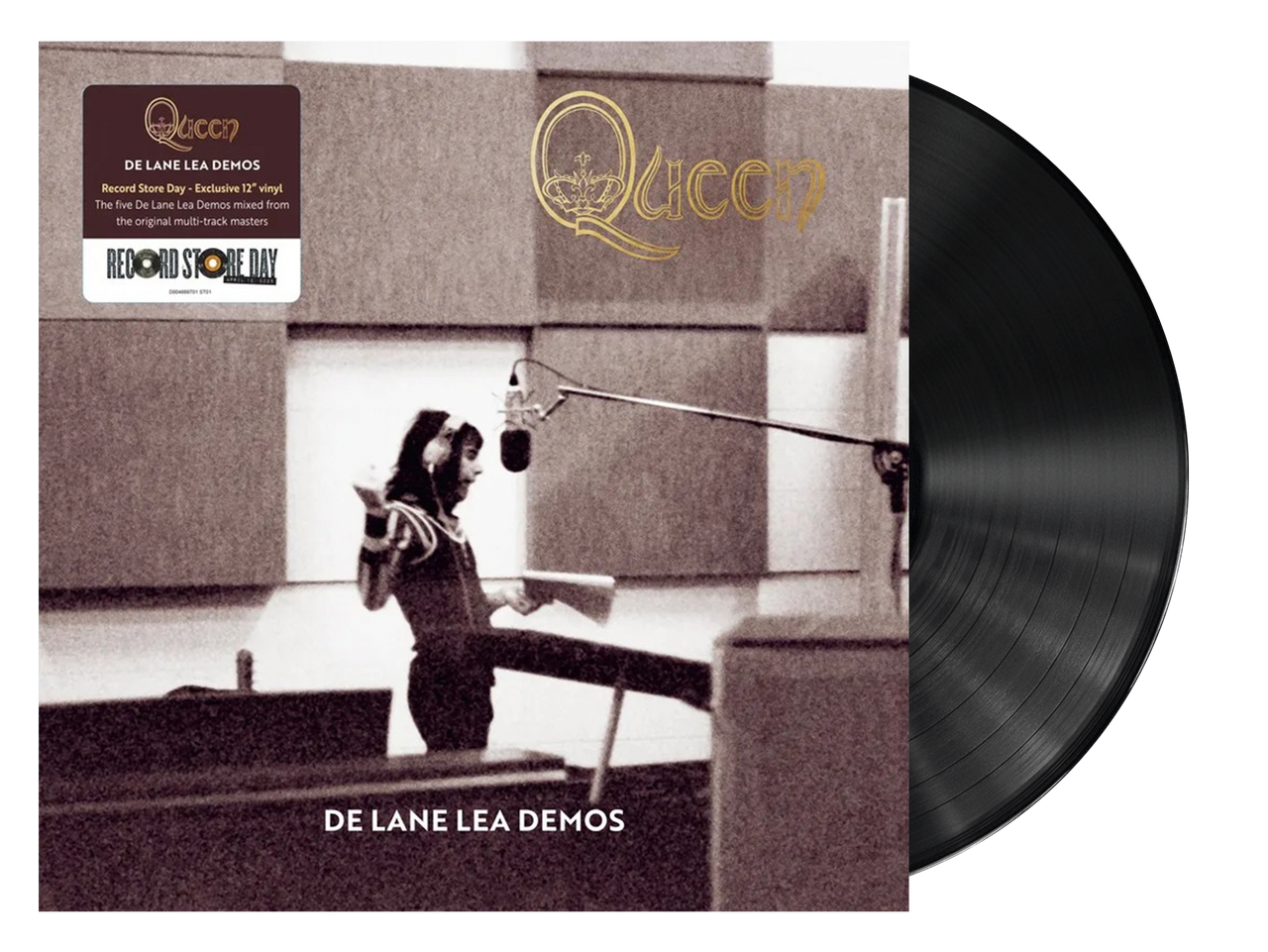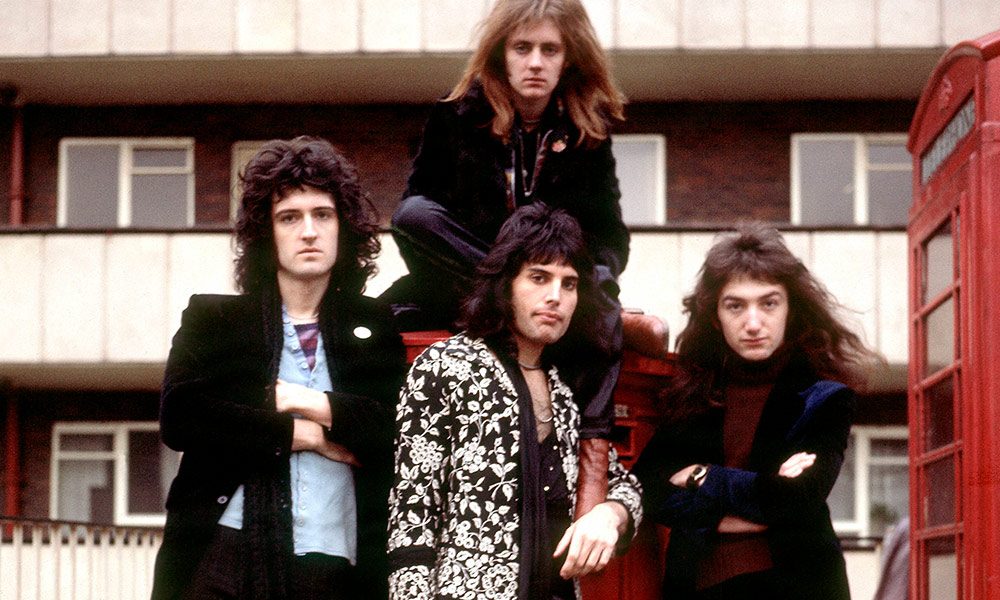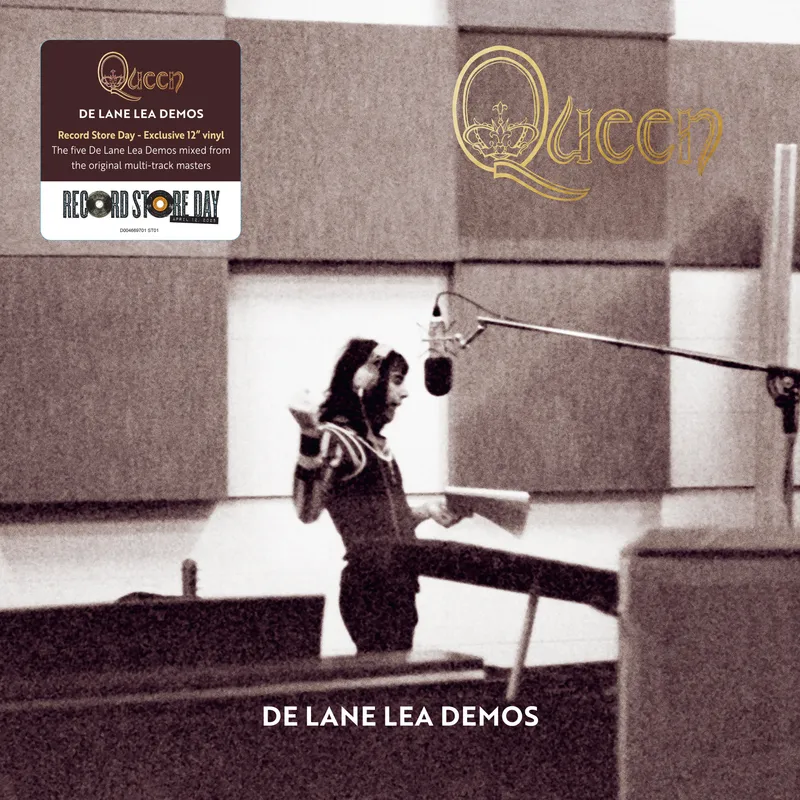On the “De Lane Lea Demos” Hear 'Pre-Coronation" Queen
This is what the ‘Queen I’ remix should’ve sounded like!
Queen’s legacy is at the same ante as the Beatles, where one in every four households is likely to own their Greatest Hits compilation. Best known for crafting mini operatic suites and sports stadium anthems, the casual listener is probably not in tune with Queen’s hard-rocking origins.
Hollywood Records focused on that era with the release of Queen I last year. Different release configurations transformed it from a remix of their self-titled debut into a period deep dive, featuring studio outtakes, BBC recordings, live material, and more. It sounds fantastic as described, but the remix became a point of contention that detracted from the original recording's authenticity. Regarding the bonus material featured on the super deluxe box set, one of the major highlights was the inclusion of the freshly remixed De Lane Lea demos from 1971.
The tale of Queen’s 1971 demo recorded at De Lane Lea stems as far back as Brian May and Roger Taylor’s pre-Queen band, Smile. The group secured a recording contract with Mercury Records—a deal that failed to deliver a single or album—and conducted their final recording sessions at Pye Studios. When vocalist/bassist Tim Staffell left the group, vocalist Freddie Mercury was quick to fill his shoes, rename the group Queen, and the group was off to the races when bassist John Deacon solidified the classic lineup.
Terry Yeadon, a Pye engineer who worked on Smile’s last sessions, was working at De Lane Lea’s newly built studio in Wembley and sought a group to test the studio’s equipment and acoustical treatments. Queen jumped at the opportunity, as it would be the first studio recordings they’d ever commit to tape.
Unlike most demos made in a rough-and-ready fashion, Queen had unprecedented access to De Lane Lea’s state-of-the-art 16-track recording console. Recording within a broad canvas enabled the group to flesh out their complex arrangements, which consisted of multi-layered harmonies and textural instrumentation. The five tracks Queen worked up at De Lane Lea sound close to the finished versions that appeared on their self-titled debut album, albeit played in a much looser and spontaneous style. Every British record label turned down the demo until Trident Productions offered their facilities to the group for recording an album that Trident would ultimately sell to a record company–not the most savvy of business deals, but another story in itself.
The 1971 De Lane Lea demos aren’t anything fresh or revealing for seasoned Queen fans. “The Night Comes Down” was deemed perfect enough not to go about re-recording at Trident for the band’s debut, so a slightly remixed version of the demo appears on the album. The demo appeared in its entirety as bonus content on the deluxe edition of the debut in 2011, sourced from a needle drop of Brian May’s personal 12” acetate. The super deluxe edition of the recently released Queen I features the demo remixed from the multitracks, and this remix became available on vinyl for the first time as part of Record Store Day 2025.
.jpg)
Instead of using scans of the original acetate sleeve and labels, the artwork of De Lane Lea Demos utilizes Brian May’s photos taken from the sessions. The original regal-style Queen logo appears with a deluxe gold foil inlay finish, and the custom center labels use the spotlight as seen on the cover of Queen’s debut.

Brian May’s faint acoustic guitars at the beginning of “Keep Yourself Alive” create an airy soundstage. There’s an element of “fun-ness” in the mix with the electric guitars and Roger Taylor’s toms moving between the speakers. Freddie Mercury’s vocals are more natural—sounding, though not as operatic as they’d become, but provide plenty of grit. The harmonies and guitars, both acoustic and harmonized, take center stage on “The Night Comes Down,” and the song’s outro builds this time around with no distortion or fatigue. Compared to the familiar album version, one of the more transformative tracks in demo form is “Jesus.” Mercury’s intimate-sounding vocals during the verses contrast with the track’s bombastic arrangement, not to mention the glorious harmonies during the chorus. The most notable difference is the middle section, which sounds more plodding and aggressive than a whirlwind of Brian May guitar licks. The most jaw-dropping moment of the record is “Liar,” where John Deacon makes the track sound unbelievably heavy by doubling the bass line that May plays on guitar. The harmonies during the chorus pierce through the speakers, and the call-and-response section spreads them out with Mercury’s vocals centered.
De Lane Lea Demos encapsulates the lively, bombastic element of the early Queen sound, which is why the band held them in high regard before production disagreements with Roy Thomas Baker altered the outcome of what became Queen’s debut album. Listening to these recordings is a breath of fresh air when one realizes the remix (Queen I) was, in a word, neutered. Even though this new mix places a slight emphasis on EQ preferences compared to the mixes heard on the original acetate, it doesn’t entirely go the extra mile of altering drum sounds or artificially changing such dynamic vocal deliveries. If Queen I sounded like this, the public would’ve been so much better served.










































.png)








